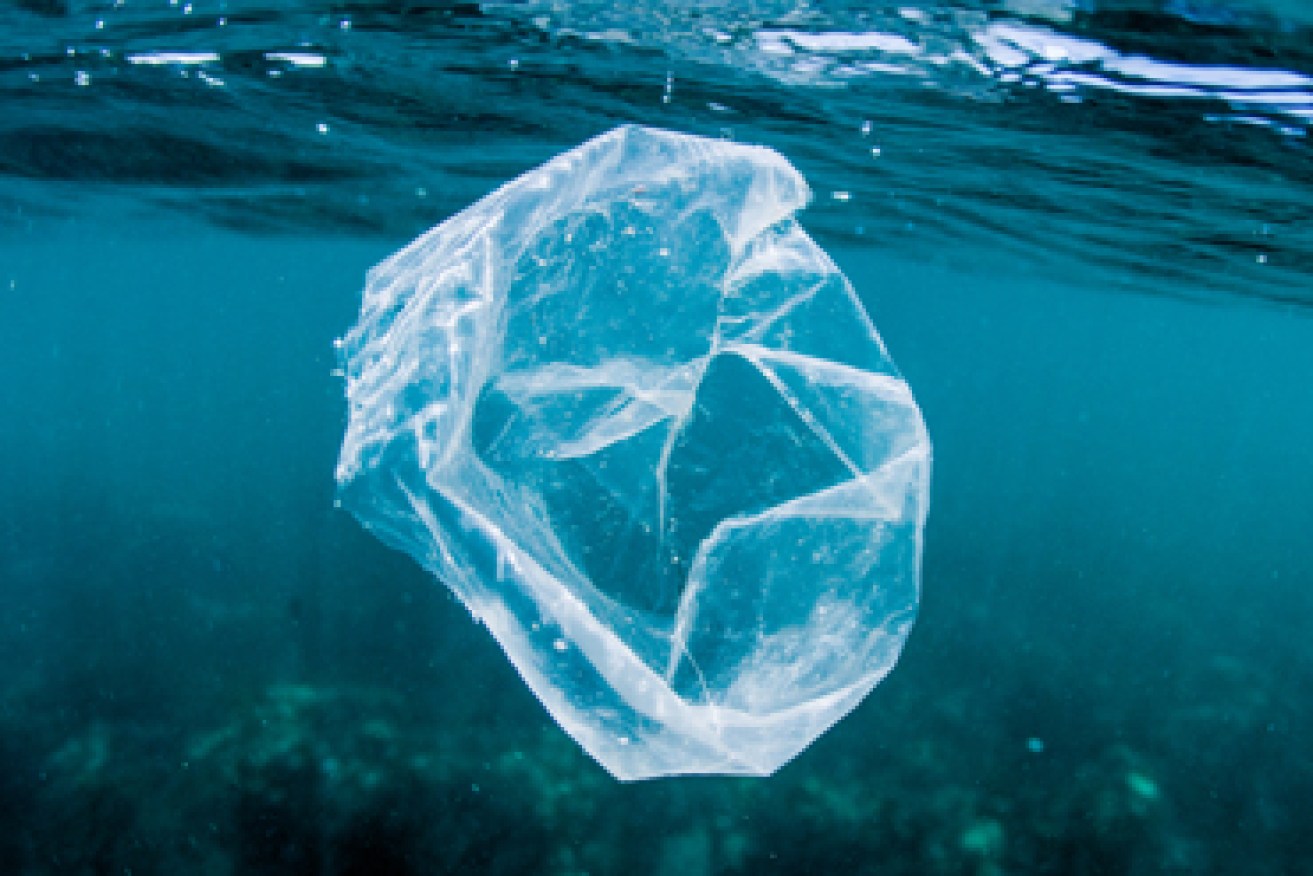‘Plastic will outnumber fish in oceans by 2050’

Plastic bag ocean. Photo: Getty
Plastic rubbish will outweigh fish in the oceans by 2050 unless the world takes drastic action to recycle the material, a report has warned on the opening day of the World Economic Forum (WEF) in the Swiss ski resort of Davos.
An overwhelming 95 per cent of plastic packaging, worth $116-174 billion, a year is lost to the economy after a single use, according to the study by the Ellen MacArthur Foundation.
The foundation promotes recycling and is headed by record-breaking solo yachtswoman Dame Ellen MacArthur.
• What the MH370 search has uncovered so far
• ‘The property boom is over’
• On notice: Netflix nears VPN crackdown
The study proposed setting up a new system to slash the leaking of plastics into nature and to find alternatives to crude oil and natural gas as the raw material of plastic production.

Plastics are the “ultimate single-use material”, says expert. Photo: Getty
According to analysis by Project MainStream, 32 per cent of the annual production of plastic is lost to “leakage”, most of which goes into the ocean, with 40 per cent going into landfill and 14 per cent each collected for recycling or incinerated for energy.
The share of leakage into the ocean is at least 8 million tonnes, equal to one garbage truck-full every minute, and research estimates that there are more than 150 million tonnes in the ocean today.
“If no action is taken, this is expected to increase to two [truck-fulls] per minute by 2030 and four per minute by 2050,” the report said, with packaging estimated to represent the largest share of the pollution.
“In a business-as-usual scenario, the ocean is expected to contain one tonne of plastic for every three tonnes of fish by 2025, and by 2050, more plastics than fish,” it said.
Dominic Waughray of the World Economic Forum, which jointly released the report, said it “demonstrates the importance of triggering a revolution in the plastics industrial ecosystem”.
“[It] is a first step to showing how to transform the way plastics move through our economy,” he said.
“To move from insight to large-scale action, it is clear that no one actor can work on this alone. The public, private sector and civil society all need to mobilise to capture the opportunity of the new circular plastics economy.”
A sweeping change in the use of plastic packaging would require cooperation worldwide between consumer goods companies, plastic packaging producers, businesses involved in collection, cities, policymakers and other organisations, the report said.
It proposed creating an independent coordinating body for the initiative.
“Plastics are the workhorse material of the modern economy with unbeaten properties. However, they are also the ultimate single-use material,” said Martin Stuchtey of the McKinsey Centre for Business and Environment, which contributed analysis to the report.
“Growing volumes of end-of-use plastics are generating costs and destroying value to the industry,” he added.
Re-usable plastics could become a valuable commodity in a “circular economy” that relied on recycling, Mr Stuchtey said.
“Our research confirms that applying those circular principles could spark a major wave of innovation with benefits for the entire supply chain.”






